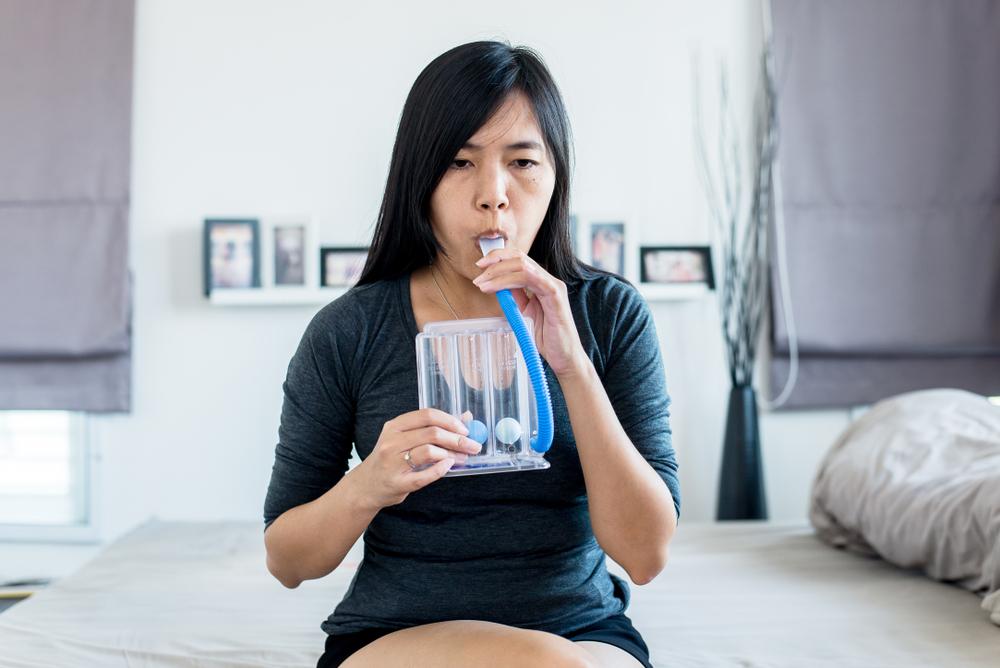Respiratory Rehabilitation During COVID-19
New guidance on the clinical management of COVID-19 patients has emerged thick and fast. On Twitter, there are frequent tweets from physiotherapists and intensive care unit (ICU) specialists sharing tips and promoting new information. Topics range from airway clearance techniques and the positioning of patients to different respiratory rehabilitation techniques to help those who have successfully recovered from acute COVID-19 pneumonia.
Inspiratory Muscle Training
Respiratory rehabilitation is often combined with inspiratory muscle training (IMT) to treat people with lung conditions. IMT is an activity which has the ability to strengthen the user’s inspiratory muscles or diaphragm muscle over time. It requires the user to breathe in through a device which has a valve set to a pressure threshold. A percentage of the user’s maximal inspiratory pressure (MIP) is used as the training load; this can range from 30% to 80% of MIP.
IMT has been used successfully in several ICUs in the United Kingdom and further afield to wean patients off their ventilators prior to and during the COVID-19 pandemic. Mechanical ventilation causes rapid wasting and weakness in the inspiratory muscles and IMT builds back their strength. The result is patients come off their ventilator faster and spend less time in intensive care.

